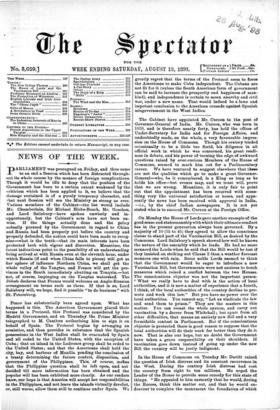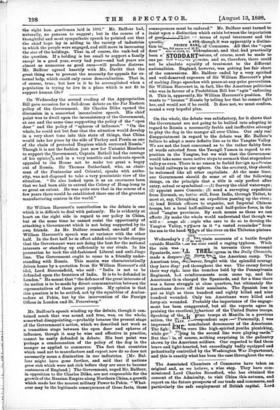In the House of Commons on Tuesday Mr. David raised
the question of Irish distress and its constant recurrence in the West. During the century Irish distress had cost the country from eight to ten millions. He urged the Leader of the House to provide some remedy for this state of things. "He appealed to him earnestly that he would, during the Recess, think this matter out, and that he would en- deavour to complete the monument the foundation of which the right hon. gentleman laid in 1891." Mr. Balfour had, naturally, no panacea to suggest; but in the course of a thoughtful and most sympathetic speech he pointed out that the chief hope lay in adding to the variety of industries in which the people were engaged, and still more in increasing the size of the holdings. That is, of course, the rock-bed of the question. If a holding is too small to support a family except in a good year, every bad year—and bad years are almost as numerous as good ones—will produce distress. Mr. Balfour agreed heartily with Mr. Devitt that the great thing was to prevent the necessity for appeals for ex- ternal help, which could only cause demoralisation. That is, of course, true ; but how is it to be accomplished when a population is trying to live in a place which is not fit to support human life



































